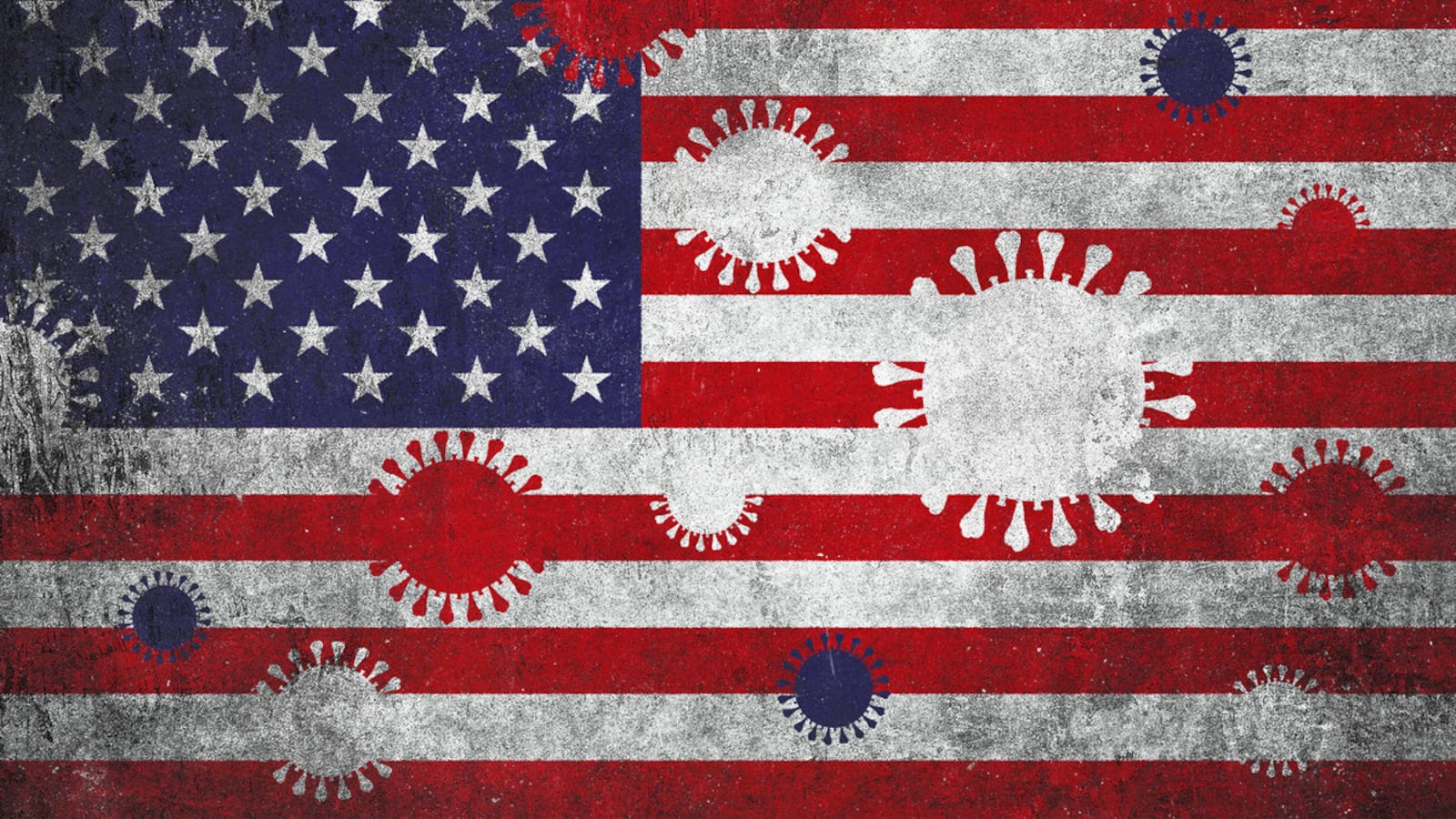A Trump donor who grabbed up $13.4 million in COVID-19-linked contracts from the Department of Veterans Affairs has a fraught history with the agency—and a newfound affection for President Donald Trump and his fellow Republicans.
Since late March, the VA has inked 21 deals with Tennessee entrepreneur Troy Mizell’s AVMedical to supply everything from masks to thermometers to blood gas analyzers, according to records gathered by ProPublica. Of those 21, federal records show the department bid only four through a competitive process.
In fact, the contracts came in spite of the two-year-old firm having never done business with the federal government before and even though Mizell’s former company, AvKare, waged a two-year legal battle against the VA after an internal investigation at the agency determined it had provided false information about its business operations.
Mizell did not respond to a request for comment.
His LinkedIn indicates he moved full-time to AVMedical shortly after Amneal Pharmaceuticals bought a majority stake in AvKare in December 2019. And campaign finance records show that in 2019, he began to take an interest in politics in a big way. Over the course of that year he gave thousands to Republican senators Marsha Blackburn (TN), Mitch McConnell (KY), Joni Ernst (IA) and Thom Tillis (NC). President Trump’s re-election campaign benefited even more. Mizell gave the legal limit to his campaign fund and $25,000 to Trump Victory, his joint fundraising committee.
Mizell’s generosity continued into 2020. One month before he received the federal contracts, he donated another $50,000 to Trump Victory as well as $35,000 to the Republican National Committee.
In the decade prior to 2019, his only political contribution had been a $1,000 donation to a 2014 candidate for state legislature.
Mizell’s experience as a federal contractor, however, goes back a decade and the record is mixed. According to his LinkedIn page, from 2007 until January of this year, Mizell served as president and CEO of AvKare, a marketer of generic drugs—including opioids—that he co-founded. The firm began doing hundreds of thousands of dollars of business with the VA and other federal agencies within months of its founding.
One of these contracts was a five-year arrangement signed in 2010 to fill orders for generic pharmaceuticals to veterans’ hospitals. But according to court documents, in 2014 the VA inspector general initiated a probe which concluded that AvKare had “misrepresented that they are a pharmaceutical manufacturer" and "misrepresented that they had commercial sales” in order to secure the contract. The investigation determined that AvKare, in fact, was a "dealer/reseller” that repackaged and distributed other companies’ drugs, and that its only significant customers were the federal government and wholesalers also doing business with Uncle Sam.
When the VA declined to renew its deal with AvKare in 2015, the company took the federal government to court—claiming that, because its packaging included crucial labeling and National Drug Code information, it was a manufacturer. It further asserted that its transactions with wholesalers parlaying its products to the federal government should count as commercial sales.
A federal judge slapped these arguments down in 2016, and an appeal failed the following year. Nevertheless, since the final failure of AvKare’s lawsuit, the company has received a total 146 contracts from Veterans Affairs for everything from medication to surgical equipment to blanket warmers. The VA has justified the contracts on grounds that the COVID crisis required them to enlist a wide range of protective equipment suppliers.
AvKare was also entangled in an alleged book-cooking scheme by one of its suppliers, Georgia-based MiMedx, which had an arrangement to sell drugs directly to the VA through one of AvKare’s contracts. According to authorities, the company inflated sales by delivering drugs neither AvKare nor the federal government had ordered. This resulted in a pair of Department of Justice indictments against MiMedx’s top executives last November, and a $1.5 million Security and Exchange Commission penalty. MiMedx has never admitted to any wrongdoing, and AvKare was not accused in either case.
AvMedical wasn’t the only firm headed by a big GOP donor to score a first-time federal contract amid the COVID-19 crisis. Gastonia, North Carolina-based Parkdale Advanced Materials, got a whopping $543 million in orders for personal protective equipment, as first reported in Courthouse News. Parkdale CEO Andy Warlick has given $59,400 just this year to the National Republican Campaign Committee—and another $75,600 to committees affiliated with Rep. Patrick McHenry (R-NC). He also kicked $10,000 to the accounts of Rep. Greg Murphy (R-NC), and $2,800 each to Sen. Thom Tillis (R-NC), Rep. Dan Bishop (R-NC), and Rep. Nancy Mace (R-SC). Warlick also gave $5,000 to the political action committee of Rep. Amerish Bera (D-CA).
Another Gastonia firm, Beverly Knits, snagged a $43 million contract to manufacture hospital garb earlier this month. Company founder Robert Sytz has given $8,575 to the National Republican Senatorial Committee since 2018.
The VA maintained that all its vendors go through a standard vetting procedure, and asserted that the pandemic had obliged the agency to do business with many new parties.
“During this time of unprecedented global demand for PPE, VA must cast a wide net in order to ensure that we’re meeting our supply needs,” said spokeswoman Christina Noel.
Brendan M. Fischer, director of the Federal Reform Program at the Campaign Legal Center, said it’s not uncommon for federal contractors to have political action committees or individual members who give money to candidates as the law permits. But he said the Trump administration’s frantic efforts to combat COVID have increased the chances for ethical mishaps.
“The risk seems particularly acute here, with a White House that has prioritized fundraising from wealthy donors and also is very involved in the contracting process,” he said.









